As the poet Mahmoud Darwish wrote, reflecting on the sensory memories that haunt those of us in exile from this enchanting city, “Beirut is the smell of the sun, sea, smoke, and lemons.” What I would give to spend today breathing in Beirut. If you are lucky enough to explore my favorite city, this is how to do it.
Start with the breakfast I crave every morning, Knefeh. A crunchy, gooey confection of semolina crust and thick, melted sweet cheese stuffed into a fresh kaake—a disc of breadlike dough sprinkled with sesame seeds—and drenched in sweet syrup and rose water.
Only a true Beiruti would know Amal Bohsali, an institution in the neighborhood of Hamra since 1878. The display cases are filled with giant plates of delicately piled Arabic sweets. Devour the knefeh straight off the steaming tray and take some to go, tearing through the thin paper wrap as you jump into a car and speed down the hill toward the sea.
Leave behind the traffic, angry honking, and toxic fumes to reach the Mediterranean. The Corniche, a three-mile promenade stretching from the Phoenicia Hotel, where former Prime Minister Rafik Hariri was killed in a targeted bombing in 2005, to the outskirts of the Hezbollah- and Amal-controlled suburbs, is a peaceful refuge from the madness of the city. It is the only place in Beirut where people of all backgrounds coexist in complete harmony, mingling together under the shade of bullet-scarred palm trees. The marine breeze is complemented by whiffs of fruity argileh (water pipe) smoke, and the calls of seagulls and coffee vendors blend together. When I visit, a Syrian oud musician strums old love ballads on a bench. On a boulder perched over the sea, a man in a suit and pink shirt has installed a folding chair, a plastic table, and a giant speaker, which is channeling the voice of Egyptian singer Umm Kulthum.
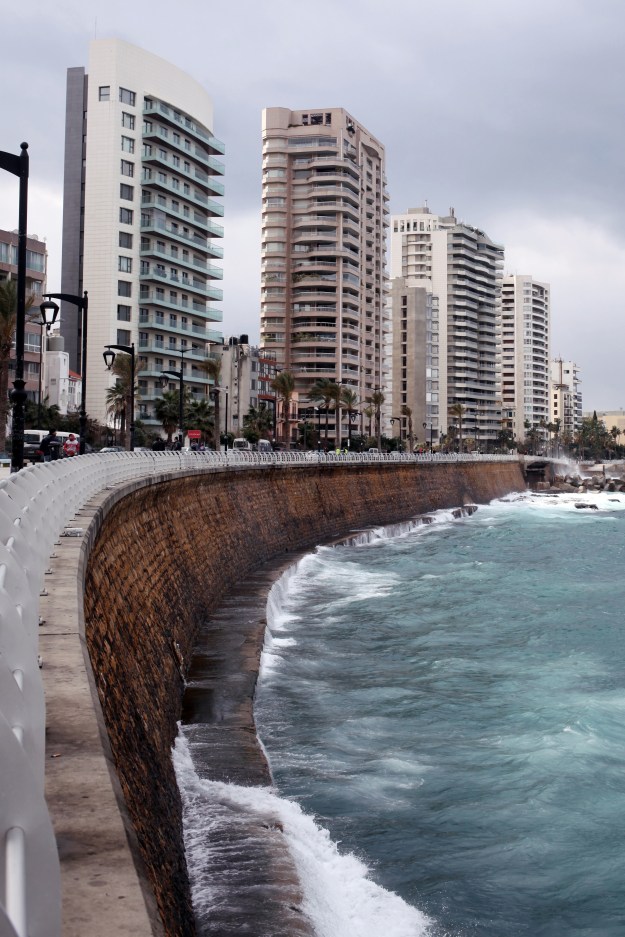
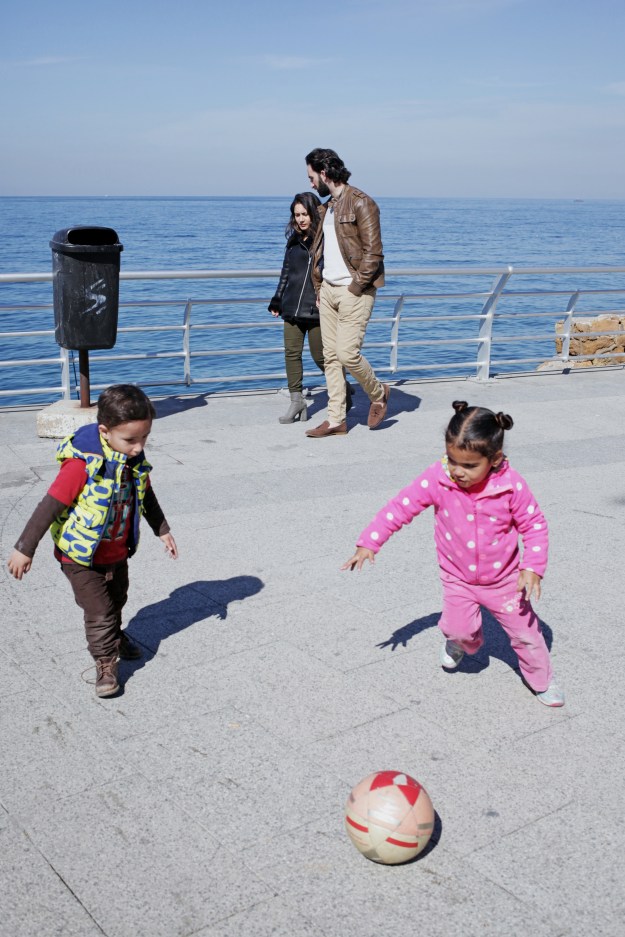
Amble west. Here it seems that everyone is happy. Children race, bright with laughter. Lovers embrace shyly. Families set up grills on benches. Women in head scarves and tight velvet tracksuits jog. Tourists on rental bikes seek the sea. Tanned boys jump off the cliff into the waves. Beyond the American University of Beirut, the Central Military Club, and the giant wheel of the amusement park at the tip of the coast are two of the city’s most venerable institutions: the Al Rawda Café, and the Sporting Club. The Sporting, where our parents and their friends have met since the prewar years when they were young and carefree, is a concrete jetty looking onto the sea, mountains, and Raouche rock. The fishermen, students, DJs, artists, and professors who linger on its beach chairs share a passion for tanning oil, cigarettes, Western magazines, and portable speakers blaring the latest pop tunes. Ice-cold Almaza Pilsner and peanuts are delivered by eager boys who run up and down the stairs to fill the loud orders of their patrons. At noon servers cover the plastic tables with tabbouleh, hummus, balilah (warm chickpeas with cumin), fattoush, and then the lightly fried catch of the day, enjoyed with tahini, deep-fried Lebanese bread, and cold beers. Our argileh is tended by a dedicated server and his steady supply of sizzling coals.
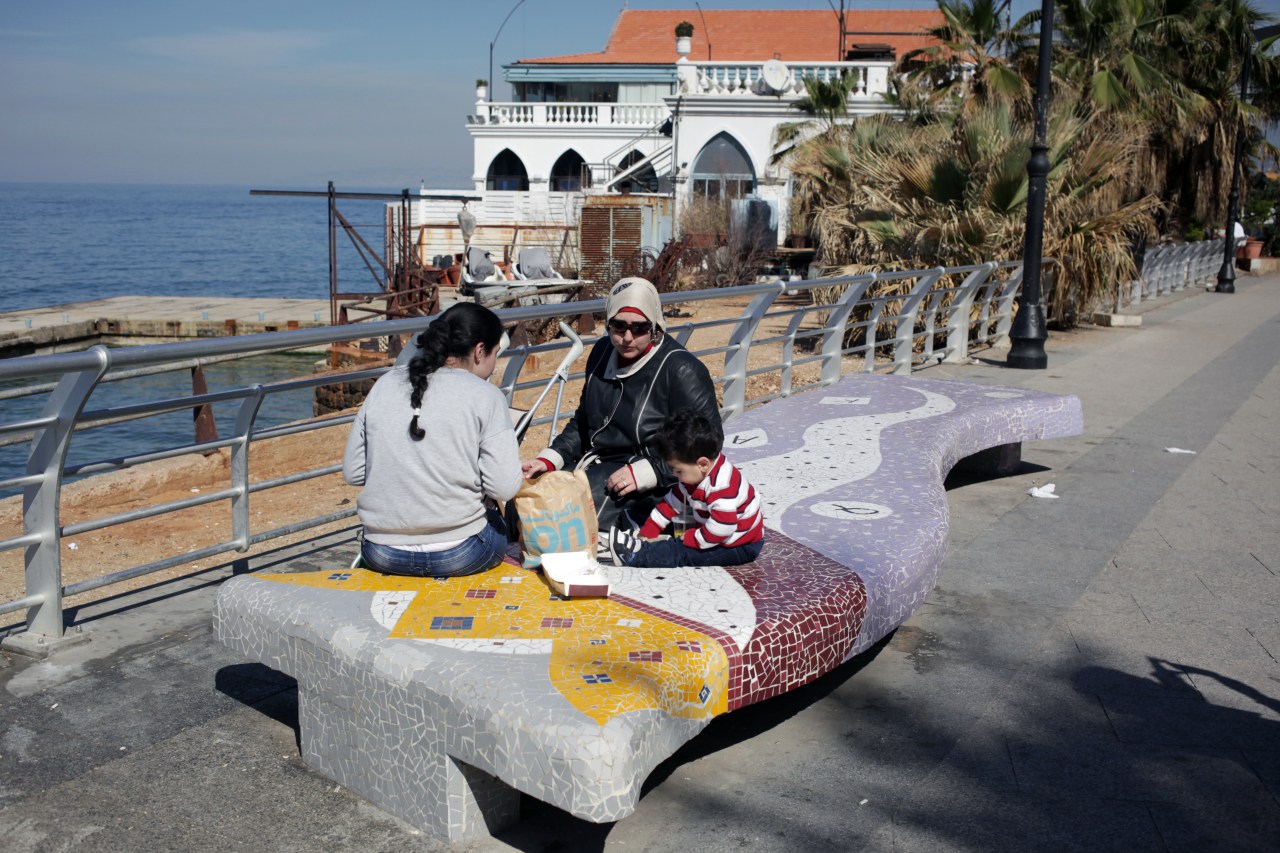
If you are daring, disregard the floating residue and gas leaks in the agitated sea and take a plunge. Then rinse and nap in the blazing midday sun.
The local design scene is inspiring right now, and some of the loveliest shops line the stone-paved streets of the Quartier des Arts in Saifi Village. At Bokja, browse boho furniture and accessories made with recycled antique fabrics from the region by artisans from throughout the country. Nearby is the studio of designer Nada Debs, who grew up in Japan. Her furniture brings pure Zen lines and modernist forms to traditional crafts like marquetry.
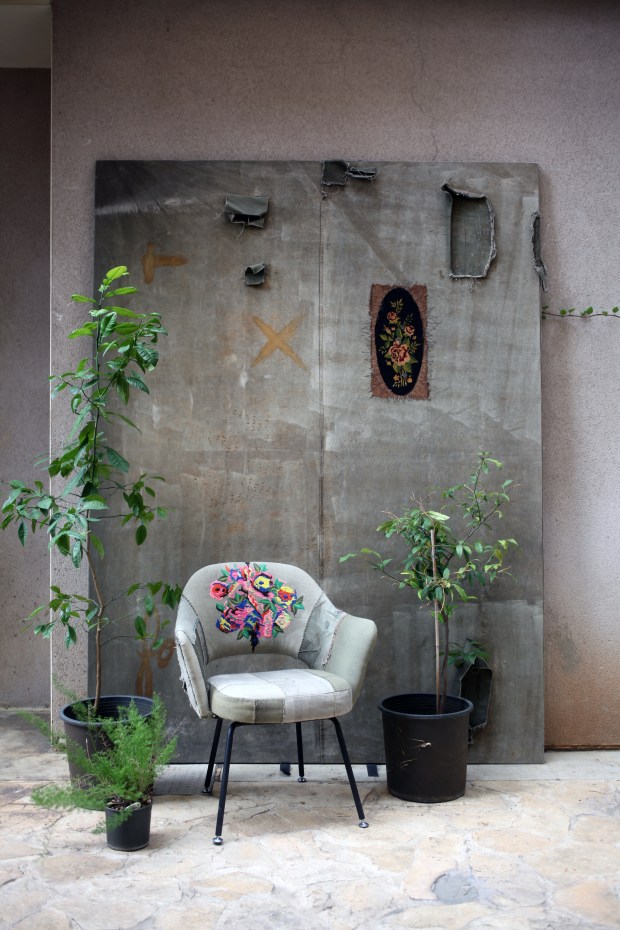
Head to my friend Ernesto Chahoud’s store, Darsko Records, buried among the narrow, bustling streets of the Armenian quarter. Relax on a vintage couch and order Turkish coffee from one of the vendors that go from store to store. Chahoud, a philosopher and funk DJ whose father, Naya, was the owner of the famous Communist-themed bar Abu Elie, launched the Beirut Groove Collective’s raucous, vinyl-only parties, held in underground locations throughout the country. Every day his DJ and musician friends stop by to play, listen, smoke, drink, and chat as he flips old Arabic funk records, rare Afro Disco bangers, and Motown hits. Next to the store are two Armenian restaurants, Varouj and Mayrig. Take your pick; both are amazing. Feast on berek (a fluffy pastry dough filled with mild melted cheese), eetch (cracked-wheat salad), and sujuk (spicy beef sausage), and drink arak (traditional liquor) while discussing politics and music.
4:00pm
The Beirut Art Center
Jisr El Wati, Building 13, Street 97, Zone 66, Adlieh
Beirut, Lebanon
In the nearby industrial zone, a gallery district has risen around the dried-up Beirut River, amid the terrifying and familiar stench of the garbage dumps. The Beirut Art Center, surrounded by graffiti murals, organizes some of the city’s best exhibitions—mostly showcasing conceptual artists like Mona Hatoum, Kader Attia, and Giuseppe Penone. The center is surrounded by other spaces, such as Ashkal Alwan, which offers residencies to international artists and organizes an art biennial; Station, a massive venue hosting art shows and live performances; and the Grand Factory, a club in an industrial building with huge windows and a panoramic view of the mountains and sea. This is also where Souk al-Ahad, the flea market, comes alive on weekends with vendors selling random finds: Vintage records, wrought-iron beds, crystal chandeliers, and velvet club chairs are among the offerings to browse.
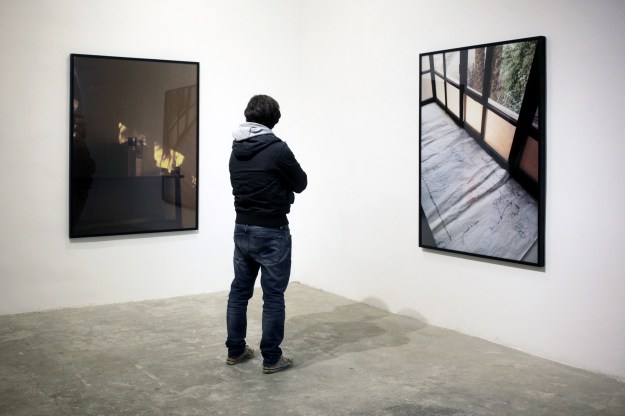
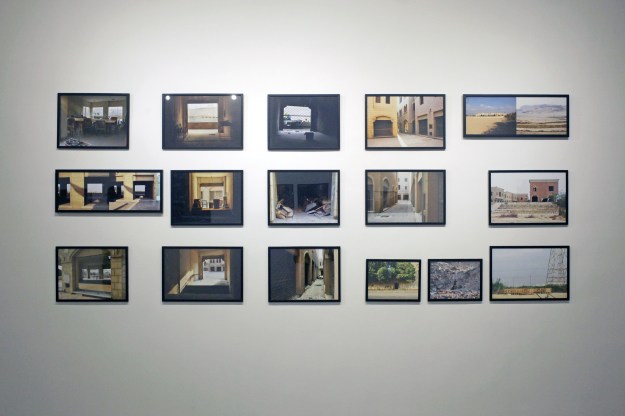
At dusk many of the city’s artists, journalists, and foreign-aid workers meet at Demo, a small Gemmayzeh bar with a homey atmosphere. The hipster bartenders craft fresh lime caipiroskas, and DJs mix funky tracks. We discuss the same subjects endlessly—the “situation” in the region, Syrian refugees, the lack of electricity and water, the mountains of garbage piled up everywhere. We weigh the pros and cons of moving to various cities. As the night slowly rises, the streets and bars awaken. Much of this energy is channeled into Beirut’s music scene, which has mirrored the angst and dreams of the city’s youth since the postwar days, with bands like Arabic trip-hop pioneers Soapkills. The city’s best DJs and musicians usually perform around 10 p.m. at Yukunkun, the narrow underground bunker next to Demo, or at Metro al Madina, one of the city’s historical theaters, which hosts Arabic hip-hop, free jazz, or post-rock. Stop next door at Mezyan, the restaurant and bar where the city’s lefty activists and bohemians drink wine and nibble on meze, like halloumi sauteed with carrots, in a modern, bright space.
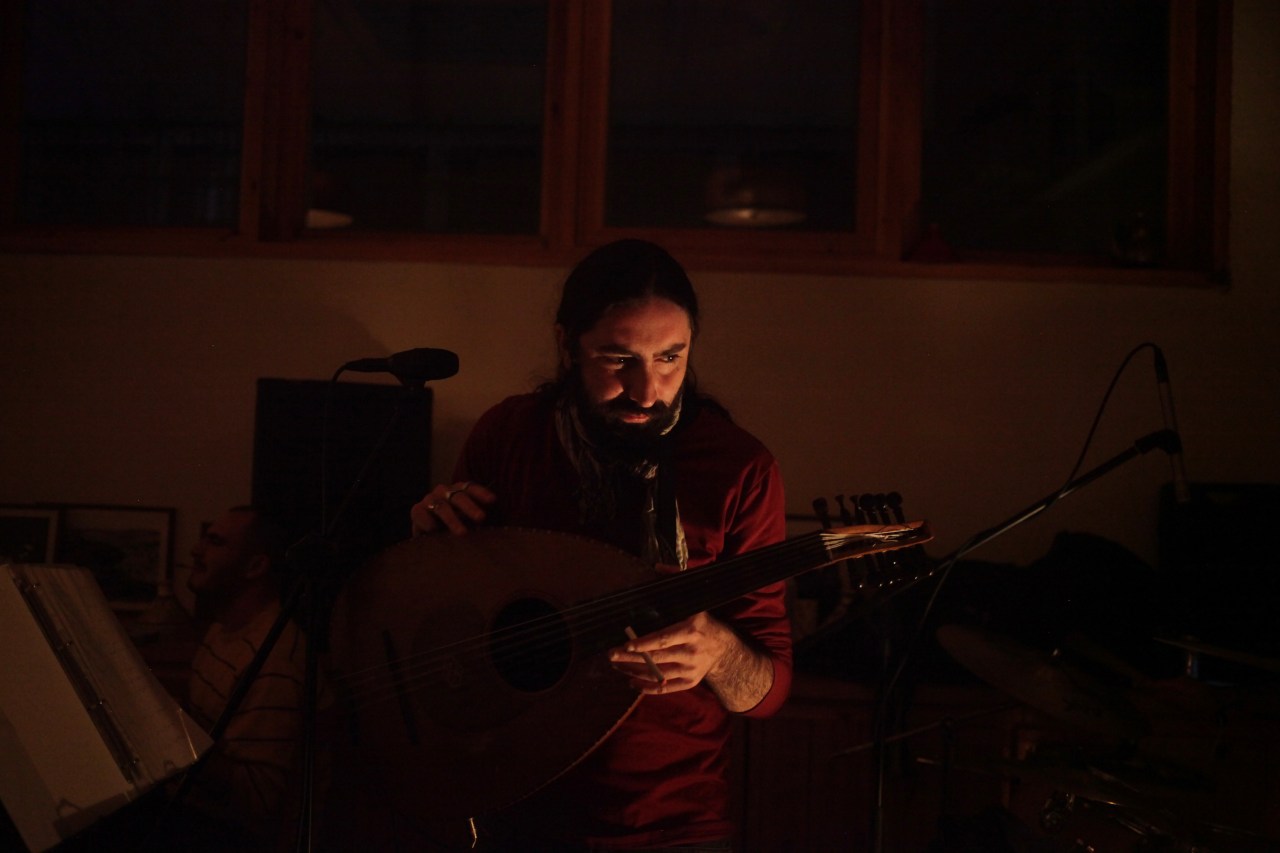
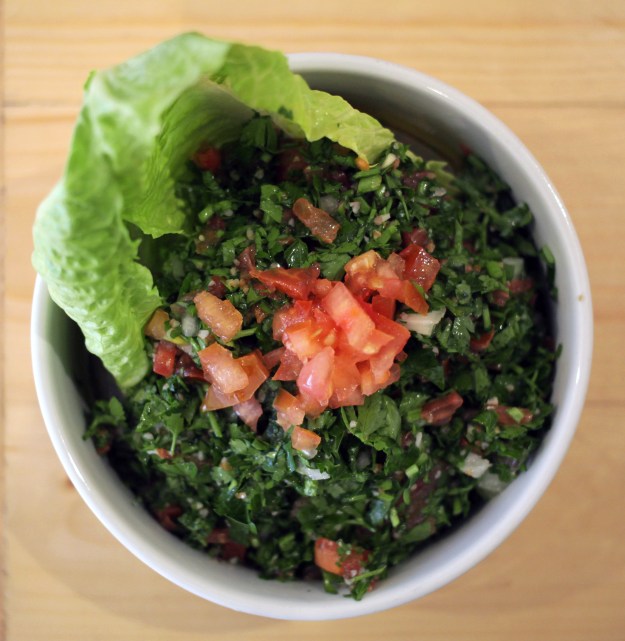
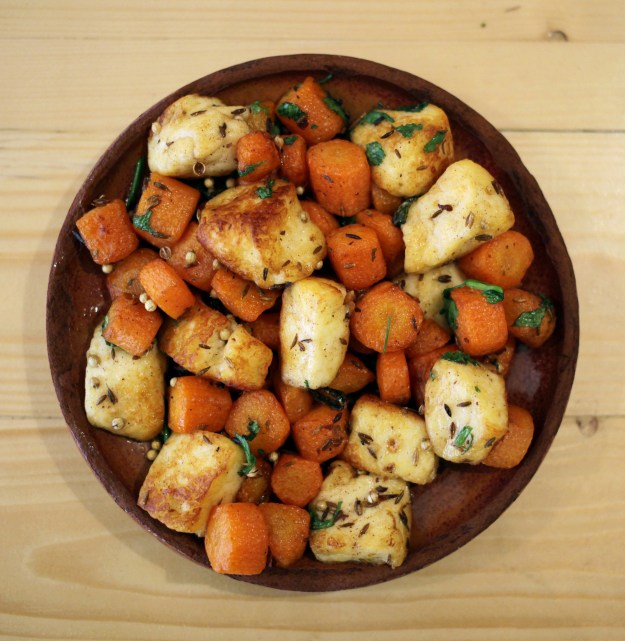
Lux, in the southern Port District, is a bit of a different scene. This is the spot where fashion designers, architects, and young people dressed in Zadig & Voltaire head for fresh herb cocktails, well-chosen local wines, and simple local dishes like whole sea bass, salads of wild greens, and octopus with beans. The owner, Johnny Farah, a sunny Palestinian with artsy glasses and thick silver curls, once designed leatherwear for Donna Karan. Bernard Khoury, the radical architect who designed the tomb-shaped nightclub B018 on the former ground of a Palestinian camp, joins the party, cigar in mouth.
At closing time we visit Olivier Gasnier Duparc and Yousef Harati, the city’s nightlife veterans, who have recently opened a plush lounge, Miss Jones, in the downtown Beirut Souk mall. While Duparc recites romantic poetry, Harati, a skinny dandy with long golden hair, performs a dance for us on the strip pole as we cheer, clap, and smoke. After hours, move on to someone’s apartment, listen to more music, empty any bottles, and smoke any cigarettes that are left. Then stumble out, intoxicated and exhausted, as the city awakens. Dig into a hot mankouché (dough filled with za’atar or cheese) at a streetside oven, and finally crash, happy to spend the day recovering before doing it all again.